13 Weight Loss Alternatives When Ozempic Isn't Available That Experts Swear By

Struggling to maintain your weight loss progress because Ozempic is out of reach? You're not alone. Dr. Daniel Burton, an obesity expert with a passion for preventative medicine, understands your frustration. With extensive experience in both hospital and community settings, Dr. Burton specializes in managing Obesity and Metabolic Syndrome, including diabetes and hypertension care.
However, it's important to note that medication isn't the only path to effective weight loss. As Dr. Cecilia Low Wang tells UC Health, "I'm glad we now have potent medications for obesity, but these drugs are not a replacement for healthy lifestyle changes. To be healthy, people need to make sure they exercise most days of the week and consistently choose healthy foods."
Read on to discover a range of alternatives to Ozempic, from other medications to lifestyle changes, to help you stay on track with your weight loss journey.
Understanding the Ozempic Shortage
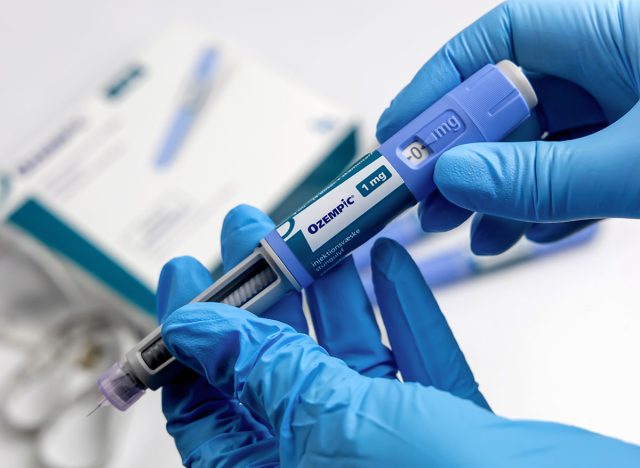
Dr. Dan explains the current situation: "If Ozempic is no longer available, what are the alternatives? What can we turn to not only continue managing our weight, but also managing our blood sugars?" In his video, he notes that the shortage, initially a U.S. problem, has become a global issue. In Canada, for instance, the shortage that began in August 2023 is expected to continue into early 2024.
The reasons for this shortage are complex. As Dr. Dan points out, "One of the big things, though, is the unprecedented demand. These medications are very, very effective at not only managing weight but also managing blood sugar levels." This high demand, coupled with lingering supply chain issues from the COVID-19 pandemic, has created a perfect storm of scarcity.
Rybelsus: The Oral Ozempic
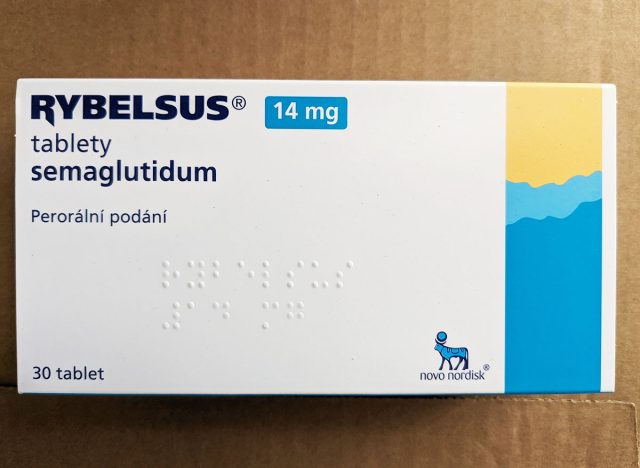
"One of the easiest and most straightforward switches that people could make is switching over to Rybelsus," Dr. Dan suggests. Often called the "oral Ozempic," Rybelsus contains the same active ingredient (semaglutide) but is taken as a daily tablet rather than a weekly injection.
However, Dr. Dan cautions about its limitations: "The big problem with Rybelsus is that even at the dose of 14 milligrams once per day, it's probably only equivalent to about 0.5 milligrams once per week of ozempic." He adds, "Unfortunately, you can't go and double up the dose. So take two 14 milligram tablets to try and get more effectiveness out of the drug."
RELATED: 20 Possible Ozempic Side Effects
Trulicity: A Weekly Option
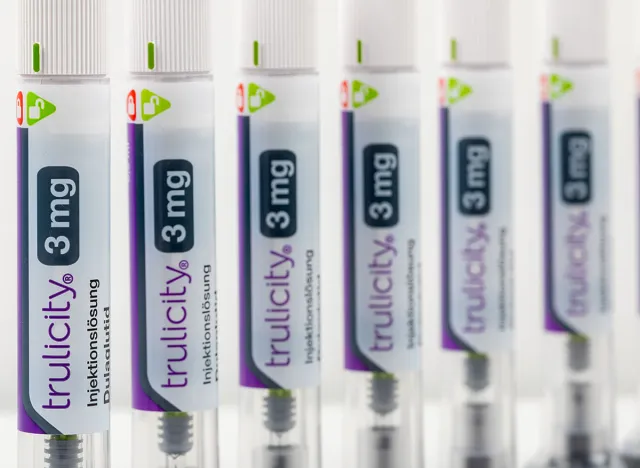
For those who prefer a weekly injection similar to Ozempic, Dr. Dan recommends considering Trulicity. "Trulicity is made by Eli Lilly. It's a once-weekly injection, just like Ozempic. It's just not as effective," he explains. While it may not continue your weight loss, it could help maintain the progress you've already made. Dr. Dan notes, "Maybe you're not going to continue losing weight on Trulicity, but you might also just be able to keep maintaining the weight that you lost until, again, Ozempic comes back to the market."
According to Diabetes UK, "Trulicity is prescribed when diet and exercise have failed to bring blood glucose levels under control. It may also be prescribed instead of metformin, if metformin is unsuitable for you."
Victoza or Saxenda: Daily Injection Options
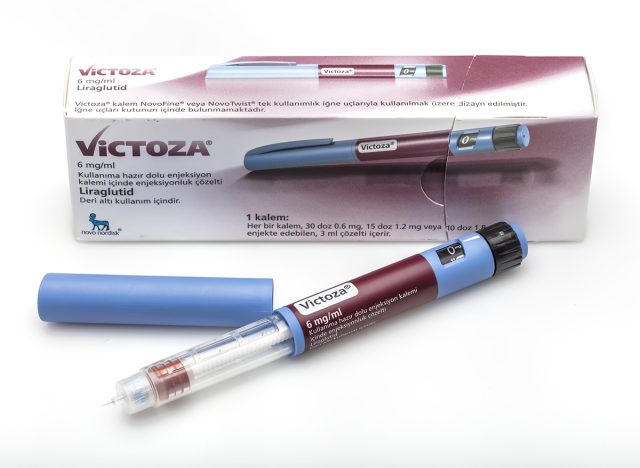
Dr. Dan suggests Victoza or Saxenda as alternatives, noting, "Victoza and Saxenda contain again the same molecule. Liraglutide. Victoza is just the one that's indicated for diabetes management, and Saxenda is indicated for obesity management." These options require daily injections but can be effective for both weight and blood sugar management. He adds, "You do become a bit of a human pin cushion because you are giving yourself a daily injection, but again, this is kind of maybe an interim thing that we're looking at until ozempic is more readily available."
The Cleveland Clinic provides additional insight: "Liraglutide promotes weight loss. It may also be used to maintain weight loss. It works by decreasing appetite. Changes to diet and exercise are often combined with this medication."
Contrave: Focusing on Weight Loss

For those primarily focused on weight loss rather than blood sugar management, Dr. Dan mentions Contrave as an option. "Contrave, which is a combination of two medications, bupropion and Naltrexone, don't really have a specific mechanism like the GLP one medications and helping us to manage our blood sugars," he explains. Its effectiveness varies from person to person, but it could be a suitable alternative for some.
RELATED: What Happens to Your Body When You Stop Taking Ozempic
Wegovy: Prescribed for Weight Loss
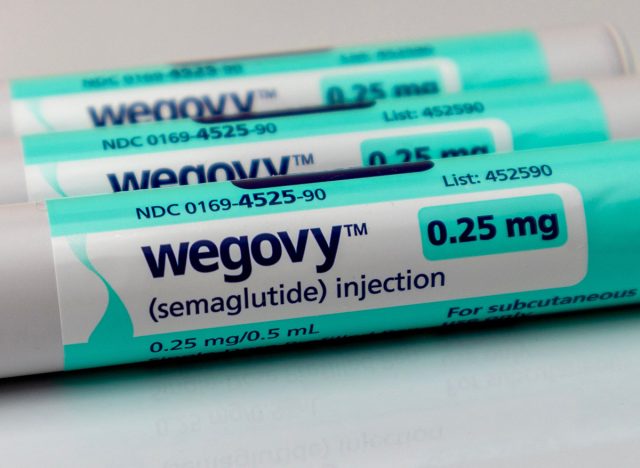
Unlike Ozempic, Wegovy is actually prescribed as a weight loss drug, not a diabetes medication. Like Ozempic, it is a semaglutide drug. Dr. Mihir Sanghvi tells the British Heart Foundation, "Wegovy acts on areas of the brain which are involved in regulating your appetite. It increases feelings of fullness, reduces feelings of hunger and reduces the preference for high-fat foods. It also reduces blood sugar by promoting the release of insulin when blood sugar levels are high."
Mounjaro and Zepbound: New Options on the Horizon
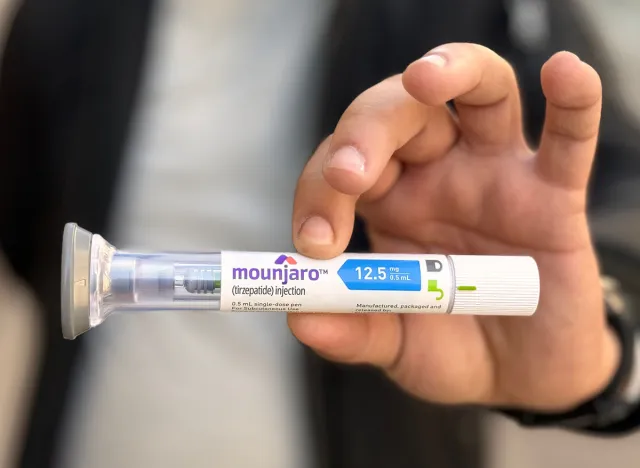
Dr. Dan concludes with an exciting development: "Maro is the big dog that is coming to market." He expresses optimism about Maro's potential effectiveness and availability, stating, "In speaking with the representatives from Eli Lilly, the makers of Maro, they have assured me that they're doing their utmost to learn from everything that has happened with Novo Nordisk and Ozempic and Wegovy to ensure that there is no supply chain, no shortage issues in terms of Maro and IT coming to market."
Dr. Cecilia Low Wang provides additional context: "Zepbound is the brand name for the drug tirzepatide when doctors prescribe it for weight loss. Mounjaro is the name of the medication used to treat diabetes. Both Zepbound and Mounjaro are brand names for the generic drug, tirzepatide."
While prescription medications can be effective, there are also non-prescription alternatives that can aid in weight loss:
Alli: Over-the-Counter Option

Alli (orlistat) is an over-the-counter weight loss drug that works by stopping dietary fat from being absorbed. The Mayo Clinic explains, "Lipase, an enzyme found in the digestive tract, helps break down dietary fat into smaller parts, so it can be used or stored for energy. Orlistat blocks the work of lipase. When you take the drug with a meal, about 25% of the fat you eat isn't broken down. The fat is passed through bowel movements." If prescription or over-the-counter medication is not a choice or an option, certain foods can help encourage fullness and support weight loss.
Flaxseed For Fullness
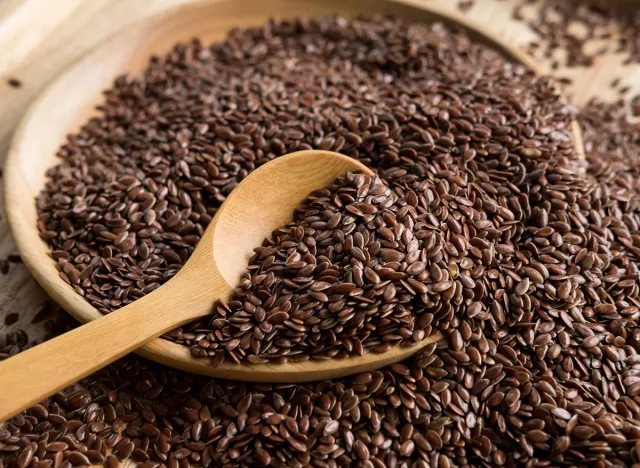
If prescription or over-the-counter medication is not a choice or an option, certain foods—like flaxseed—are not only healthy but can help encourage fullness. Look for foods high in fiber and protein. "Flaxseed's health benefits come from the fact that it's high in fiber and omega-3 fatty acids, as well as phytochemicals called lignans," Katherine Zeratsky, R.D., L.D., tells the Mayo Clinic.
RELATED: 20 Things to Avoid While on Ozempic
Vegetable Soup
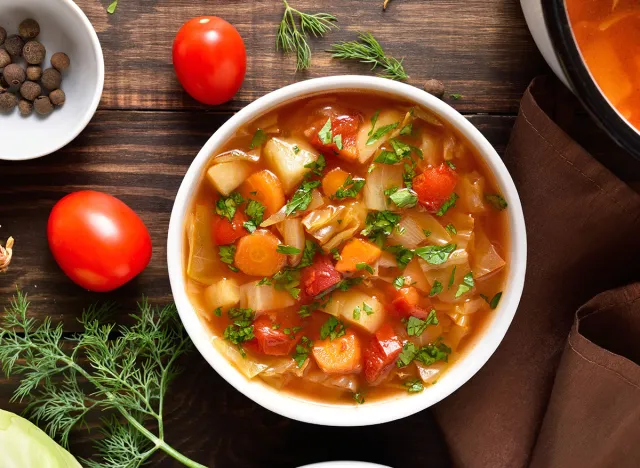
Soups are filling and tend to be low-calorie. "Binding water into foods slows down gastric emptying, which means your stomach stays fuller for longer," Barbara Rolls, professor of nutritional sciences at Pennsylvania State University and author of the 'Ultimate Volumetrics Diet' tells CNN. "The most effective way to reduce calories is to bulk up food with water. You get lots of volume without calories."
Whole Grains
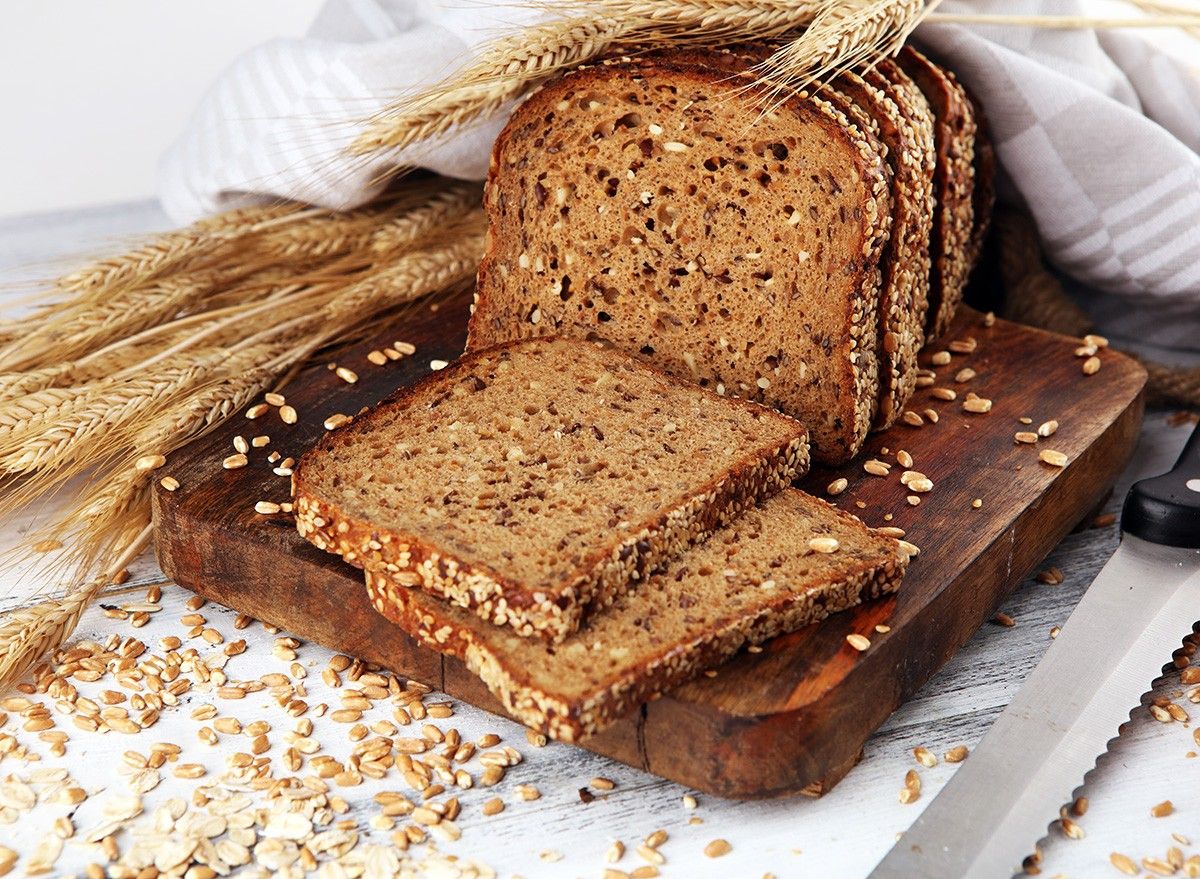
"Whole grains are the best option because they're higher in fiber and other important nutrients," says the Mayo Clinic. "Emphasize whole grains by simply choosing whole-grain options instead of refined grains, including foods made with sugar or white flour."
Eat Your Calories
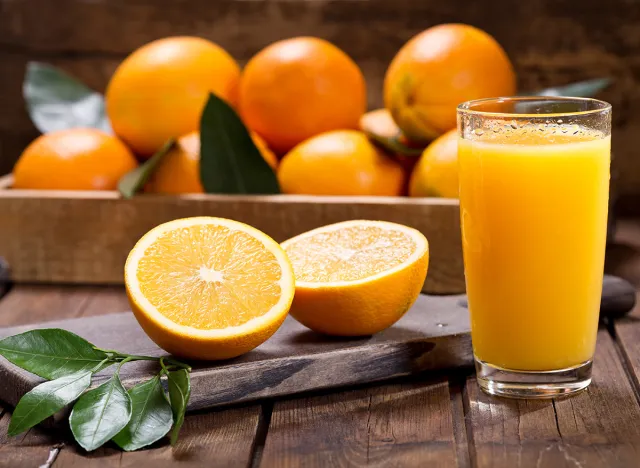
Enjoy high-fiber fruit instead of drinking it. "I like to use the example of eating a 100-calorie orange versus drinking 100 calories of orange juice," dietitian Kylie Arrindell tells Houston Methodist. "You're going to feel full or more satisfied for longer after eating the orange, and you're going to get hungry pretty quickly after drinking the juice."
Broccoli
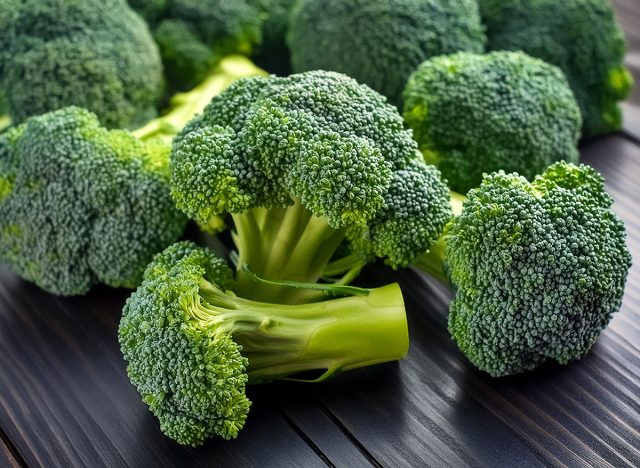
Broccoli is a filling, low-calorie food. "Broccoli is a member of the cruciferous vegetable family," says UnityPoint Health. "It's known for its high water and fiber content, which is a great combination to help you feel full."
High-Protein Foods
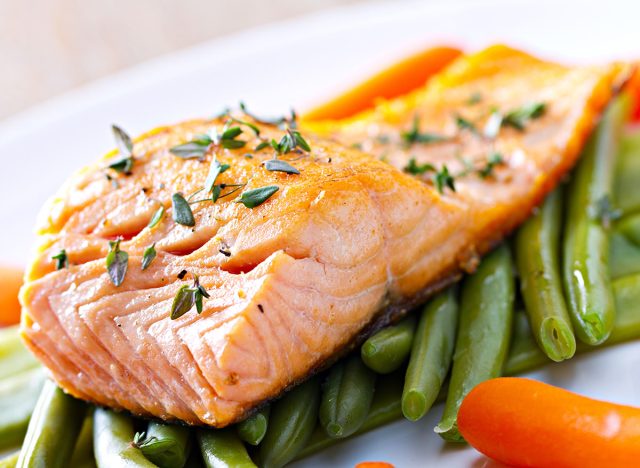
High-protein foods are ideal for appetite suppression. "Protein is the macronutrient that will likely leave you feeling more sated," Arrindell tells Houston Methodist. "But fiber-rich carbohydrates — whole grains, beans, lentils, oatmeal, raspberries and even some vegetables like collard greens, kale and artichokes — are a close second."
RELATED: 10 Side Effects of Rapid Weight Loss
Find Your Best Path Forward
The best alternative for you depends on your individual health profile and goals. As Dr. Dan advises, "Be sure to talk to your care team and getting set up to make sure you figure out what is going to be the best option for you not only to continue managing your blood sugars, but also looking at managing your weight."
Whether you opt for a medication alternative or focus on lifestyle changes, the key is to find a sustainable approach that works for you. Always consult with your healthcare provider before starting any new medication or making significant changes to your diet or exercise routine. And if you enjoyed this article, don't miss 20 Incredible Ozempic Success Stories of All Time.




